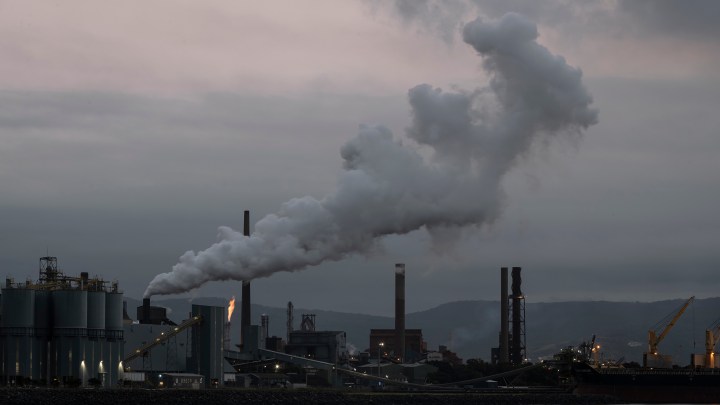
Fossil fuel pollution is killing 8.7 million people a year, study says
Fossil fuel pollution is killing 8.7 million people a year, study says

Diesel trucks, gasoline cars, coal-fired power plants and other sources of fossil fuel air pollution cause an estimated 8.7 million deaths worldwide in 2018, a new study finds.
For comparison, that annual toll is roughly equal to deaths attributed to smoking.
The findings, published in the journal Environmental Research, shed new light on the human cost of fossil fuel use. Study authors note the topline finding of 8.7 million deaths is double that of previous estimates.
“I don’t think we were necessarily anticipating an estimate as high as we did,” said co-author Eloise Marais, an air pollution researcher at University College London. She noted that the burning of oil, gas and coal spits out tiny particles, often called soot, that people inhale.
Those particles, known as PM2.5, hover in the atmosphere “up to one to two weeks,” Marais said. “As a result of this persistence, they can also be transported long distances. So you may not live next door to a power plant, but you can still be impacted by it.”
People in the United Kingdom, for example, can inhale pollutants from continental Europe, Marais said.
Past studies have demonstrated that particulate pollution is deadly, but now scientists are learning that even a little bit in the atmosphere can kill, said Joel Schwartz, study co-author and environmental epidemiologist at Harvard University.
“So once we did studies at lower concentrations, we discovered, ‘Whoa, the effects are larger,’” Schwartz said.
These revelations should resonate with government policymakers around the world considering fossil fuel investments to stimulate pandemic-hit economies, said Gernot Wagner, a climate and environmental economist at New York University.
“We are doing lots of things to avoid deaths from COVID-19,” Wagner said. “One of the worst things we could be doing is stimulating our economy with measures that then lead to more deaths on the fossil fuel front.”
There’s a lot happening in the world. Through it all, Marketplace is here for you.
You rely on Marketplace to break down the world’s events and tell you how it affects you in a fact-based, approachable way. We rely on your financial support to keep making that possible.
Your donation today powers the independent journalism that you rely on. For just $5/month, you can help sustain Marketplace so we can keep reporting on the things that matter to you.

















